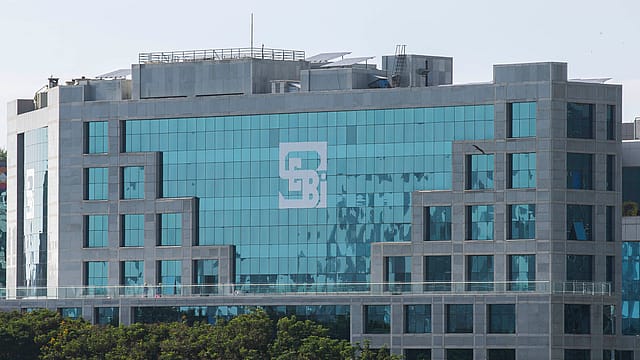SEBI proposes changes to share buyback norms
ADVERTISEMENT

The Securities and Exchange Board of India (SEBI) has released a consultation paper seeking comments from the public on its proposals to amend the existing regulations on share buybacks.
The paper proposes to reduce the maximum limit and the time period for a buyback offer under stock exchange mechanism. "The buyback regulations currently provide a time period of six months from the date of opening of the offer for the buy-back offer to be closed. This may result in artificial demand being created for the relevant company's shares during such extended period of time and trading of shares occurring at an exaggerated price. Allowing for an extended buy-back period thus prevents efficient price discovery," the market regulator says.
Currently, rules provide that buyback from the open market through the stock exchange should be less than 15% of the paid-up capital and free reserves of the company.
Under the stock exchange route, there is a possibility of one shareholder's entire trade getting matched with the purchase order placed by the company and thus depriving other shareholders to avail the benefit of buyback, SEBI says, adding that this runs contrary to the underlying principle of equitable treatment which forms the basis of all the corporate actions.
The market watchdog has proposed a separate window on the stock exchange for undertaking buyback through this route.
Buyback rules require companies to ensure that at least 50% of the amount earmarked for a buyback is utilised. A SEBI sub-group, headed by HDFC vice-chairman and CEO Keki Mistry, has proposed that the minimum threshold of 50% can be increased to 75%. This, according to SEBI, will prevent companies from announcing buy-backs in cases where there is no real intention to complete the buy-back for the entire amount.
The company should ensure that at least 40% of the amount earmarked for the buyback is utilised within half of the duration specified as per the glide path, the consultation paper says.
Share buyback through stock exchanges should only be undertaken in respect of frequently traded shares, it adds.
To prevent situations where the trading price of the company's shares is exaggerated by the buyback being undertaken, the sub-group proposes that the company shall not purchase more than 25% of the average daily trading volume (in value) of its shares or other specified securities in the ten trading days preceding the day in which such purchases are made.
SEBI has further proposed that a company which is net debt free should be permitted to undertake up to two buybacks in a single financial year.
SEBI has also proposed to shift the incidence of tax on buyback from the company to the hands of shareholders. Listed companies resort to share buybacks to distribute surplus cash to the shareholders.
"The current mechanism of buyback tax appears to be tilted in favour of those shareholders who tender their shares and take exit (partially or fully) from the company and adversely impacts the interest of shareholders who do not wish to tender their shares under buyback," the market regulator says.
SEBI has sought public comments on these proposals until December 1.